
China
13:07, 03-Apr-2018
The guardian of China’s top-quality Xinglong coffee
CGTN - Liu Chen, Zhang Wanbao, John Goodrich
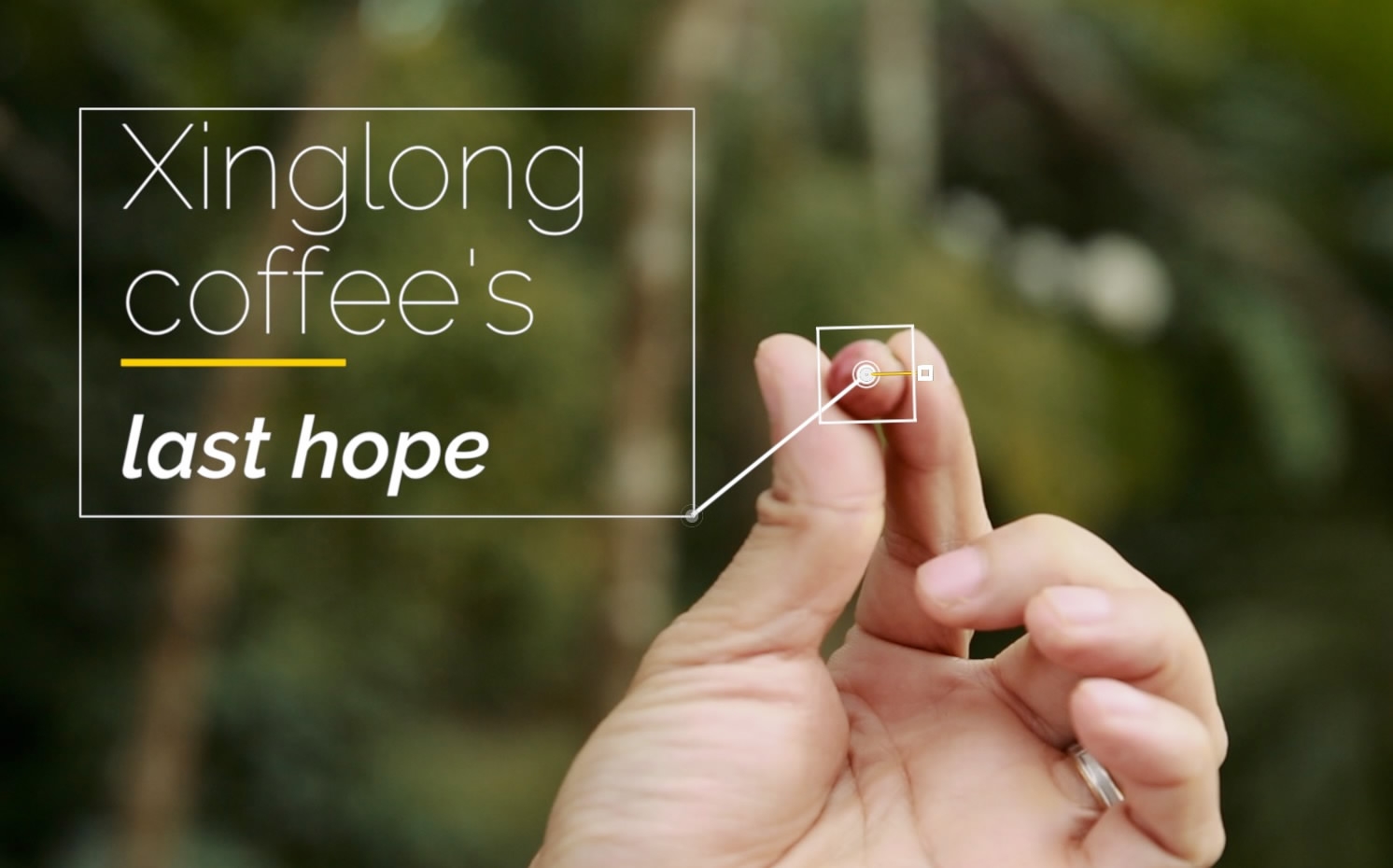
“The coffee I put on the table is to purify the air. This is even better than the coffee used in Starbucks.” - Wu Haiming, the third generation of a Malaysian Chinese coffee family.
Wu’s family returned to China in the 1950s and were relocated to Xinglong, a small county on south China’s Hainan island. A group of overseas Chinese arrived together, planted coffee trees and built China’s first coffee industry from the ground up.
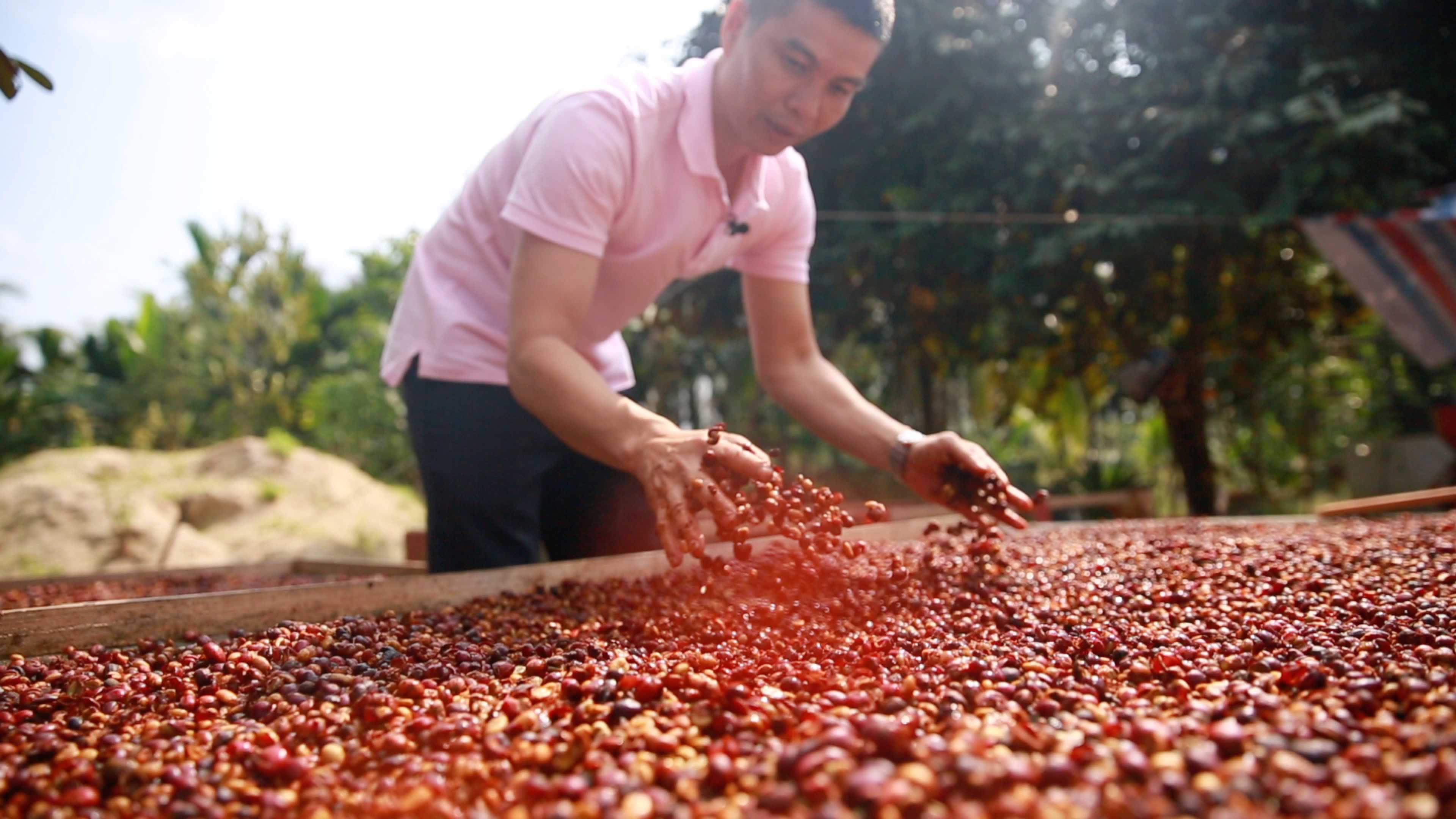
Wu Haiming. /CGTN Photo
Wu Haiming. /CGTN Photo
Wu grew up with coffee. As a child he heard how his family brought coffee seeds into China, and saw the prosperity of the coffee industry in Xinglong. As he grew older he witnessed the status of Xinglong coffee decline, from national treasure to street souvenir.
“Swallow the coffee seeds, cross the border.”
Southeast Asian countries initiated policies aimed at marginalizing ethnic Chinese in the 1950s, triggering a wave of immigration. Overseas Chinese from Indonesia, Malaysia and many other Southeast Asian countries headed to China, even though they had lived overseas for generations.
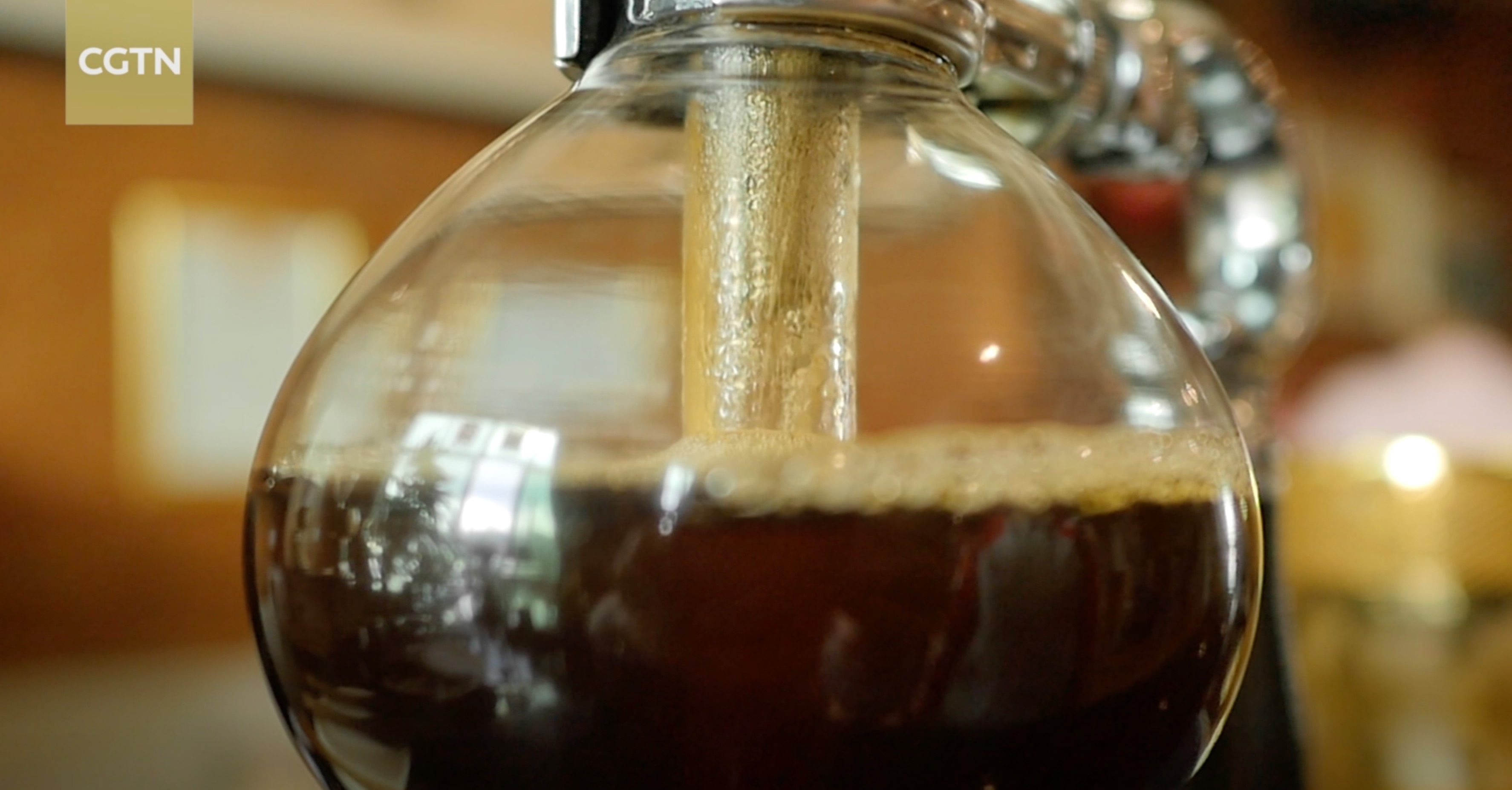
CGTN Photo
CGTN Photo
Premier Zhou Enlai encouraged overseas Chinese to “come home” to China. Returnees re-embraced Chinese culture and helped reconstruct the country.
Xinglong County was an uninhabited area before the government sent Chinese returnees there. Descendants of overseas Chinese from 22 different countries live there together peacefully.
“We speak special Mandarin here,” Wu explained. “It is kind of a mixture of Malaysian Chinese and local dialect.”
As Xinglong is located at the border of tropical and subtropical regions, it is perfect for rubber trees.
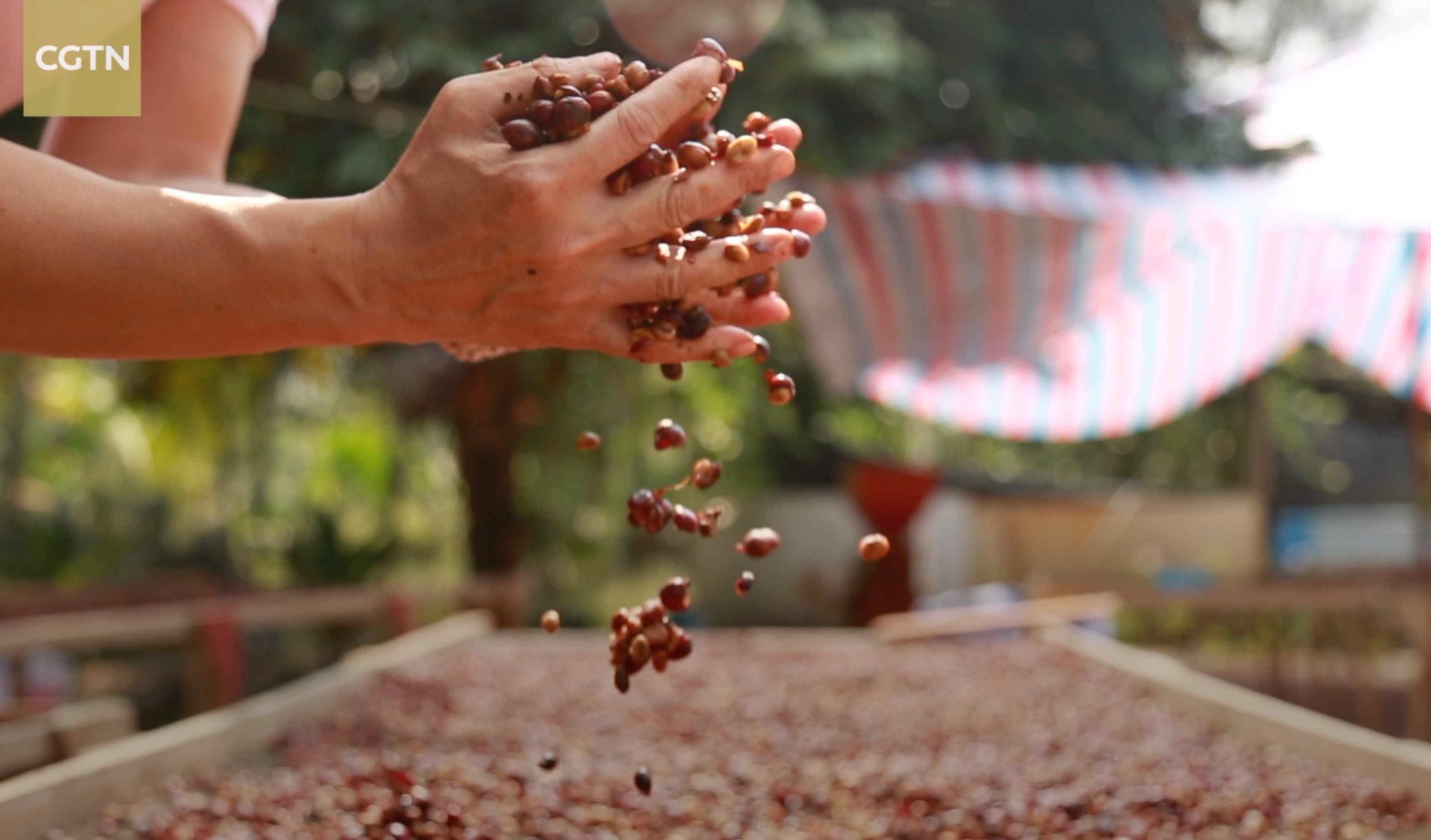
CGTN Photo
CGTN Photo
“Farming the rubber trees is very tiring. Ancestors needed coffee to keep them awake, but there was no coffee in China at all,” Wu said. “Transporting plants was strictly forbidden at that time. So my ancestors swallowed the coffee seeds before they crossed the border.”
The latitude of Xinglong offers perfect weather and environment for coffee trees. Wu believes the quality of Xinglong beans is as good as Jamaican Blue Mountain Coffee.
“Premier Zhou Enlai praised Xinglong coffee as better than French.”
In 1960, Premier Zhou visited a coffee factory in Xinglong, and liked the brew so much that he drank three cups in a row.
“I have tried coffees abroad, but the coffee made in China is the best. Xinglong coffee is one of the best in the world,” said Zhou. His praise gave the Xinglong coffee brand a big boost.
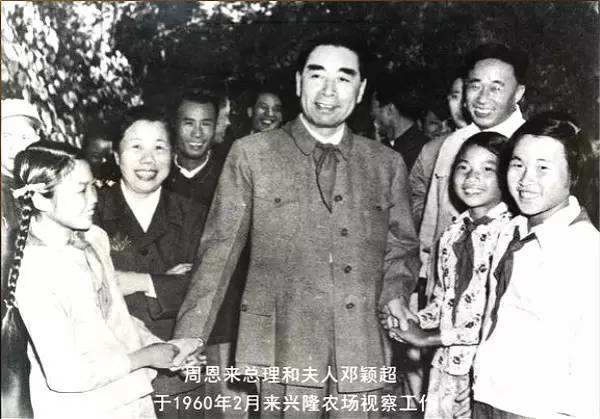
Premier Zhou Enlai visited the coffee factory in Xinglong. /CGTN Photo
Premier Zhou Enlai visited the coffee factory in Xinglong. /CGTN Photo
In the 1970s, the coffee tree plantation area in Xinglong was expanded to over 2,635 acres. The Overseas Chinese Coffee Factory also grew fast. A packet of Xinglong Coffee was the must-have for Hainanese celebrating important festivals.
“When I was in college, the most precious present to my schoolmates was a packet of Xinglong coffee,” said Wu Chunguang, the chairman of Xinglong Coffee Committee. “Xinglong coffee meant top-quality coffee. It was always served on important occasions.”
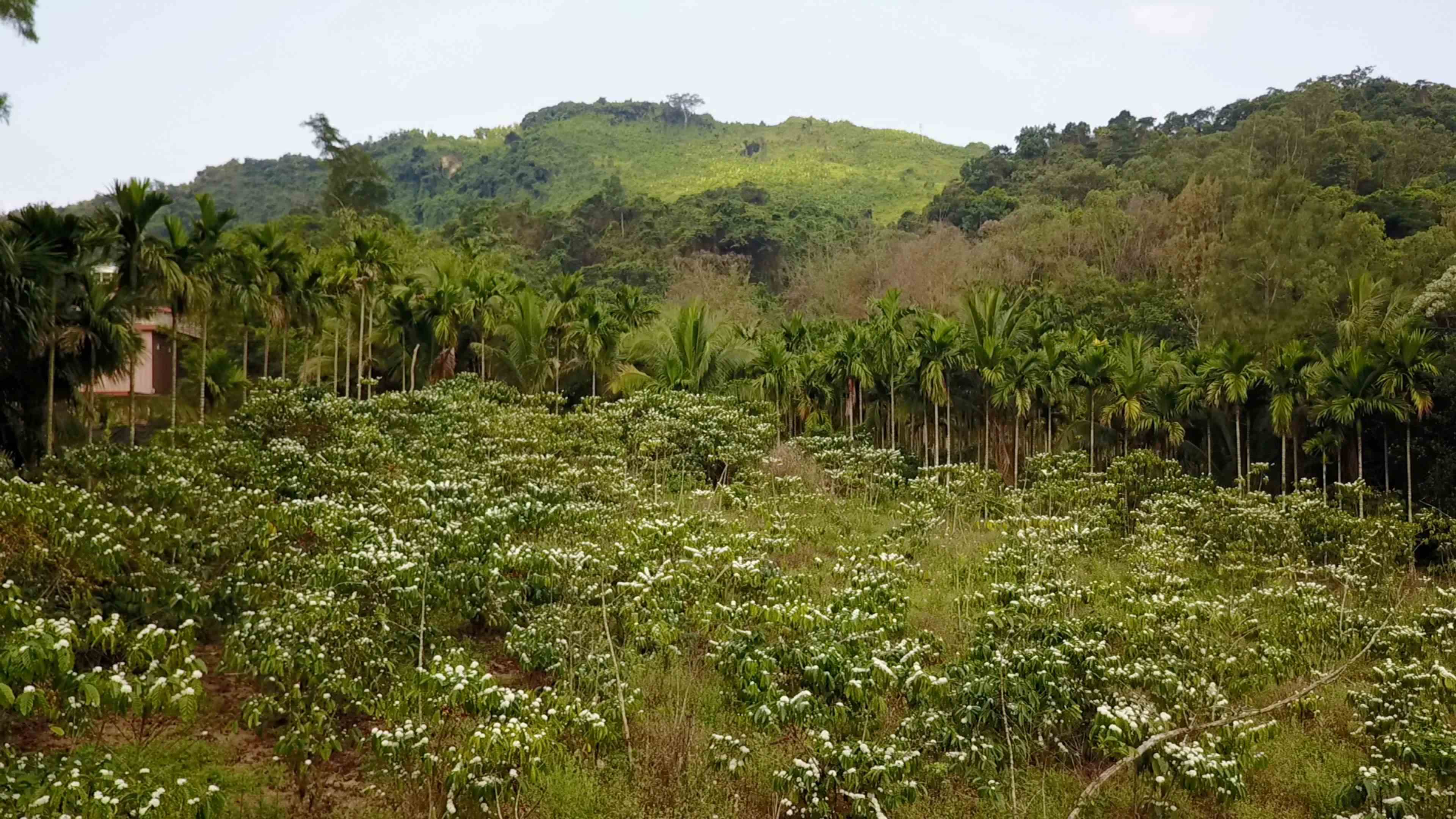
Coffee trees in Xinglong. /CGTN Photo
Coffee trees in Xinglong. /CGTN Photo
Coffee has an important role in the daily lives of the 30,000 Xinglong residents. They share over 180 coffee stores in the town. Every year, over 100 tons of coffee is consumed in the county.
“Xinglong people drink coffee from day to night,” Wu said. “I need six cups of coffee a day."
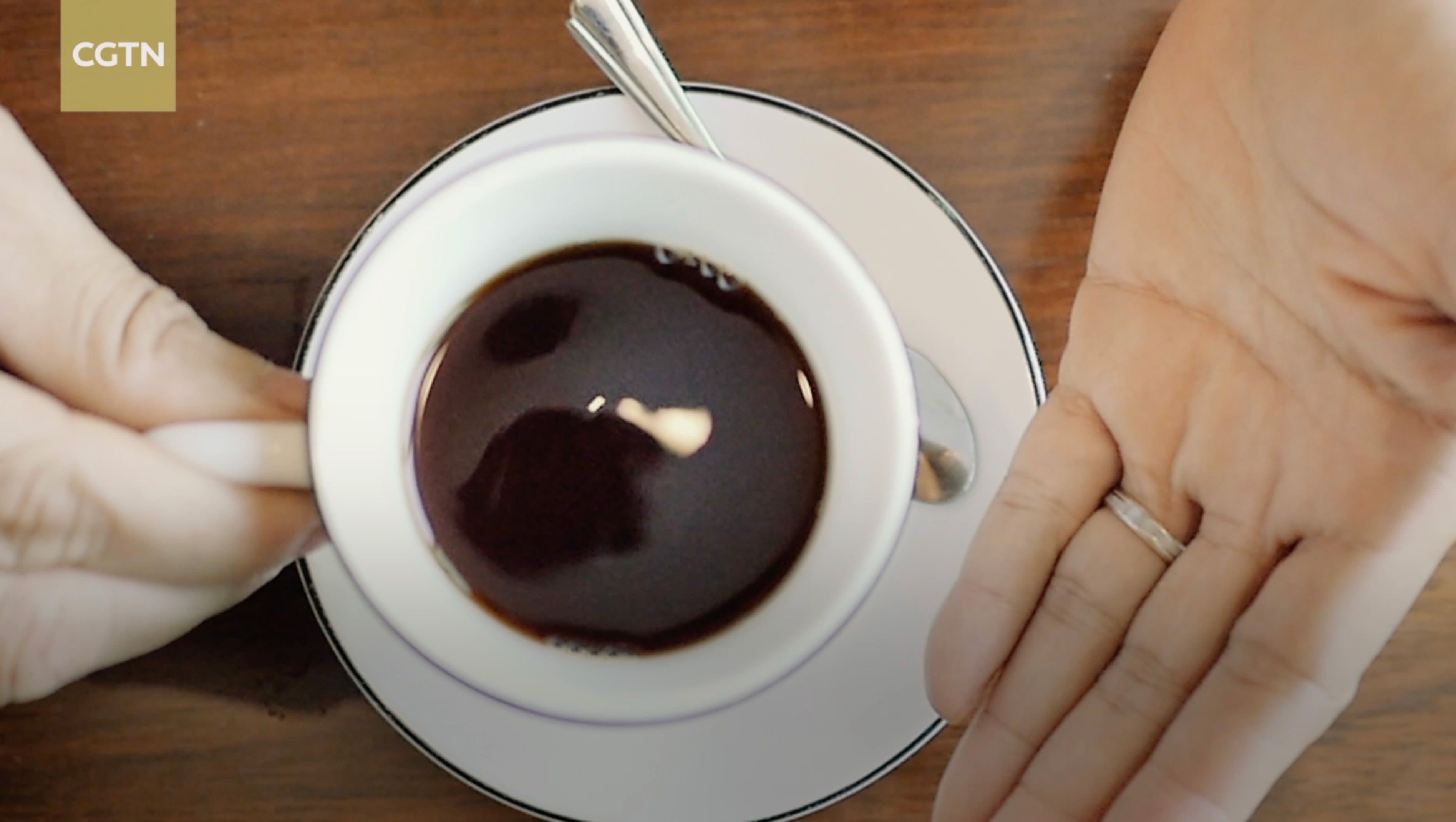
CGTN Photo
CGTN Photo
The traditional Chinese breakfast of soybean milk and fried bread sticks takes a twist in Xinglong, where the typical morning meal is fried bread sticks with coffee.
“100 percent of ‘Xinglong coffee’ in markets is not made in Xinglong.”
Products labeled “Xinglong coffee” can be found in every supermarket in Hainan Province, priced from 15 to 50 yuan (2.3 to eight US dollars). These souvenirs are often cheap instant coffee powders made from beans imported from Vietnam and Laos.
“The taste is very bad. The reputation of Xinglong coffee has been completely ruined,” Wu lamented.
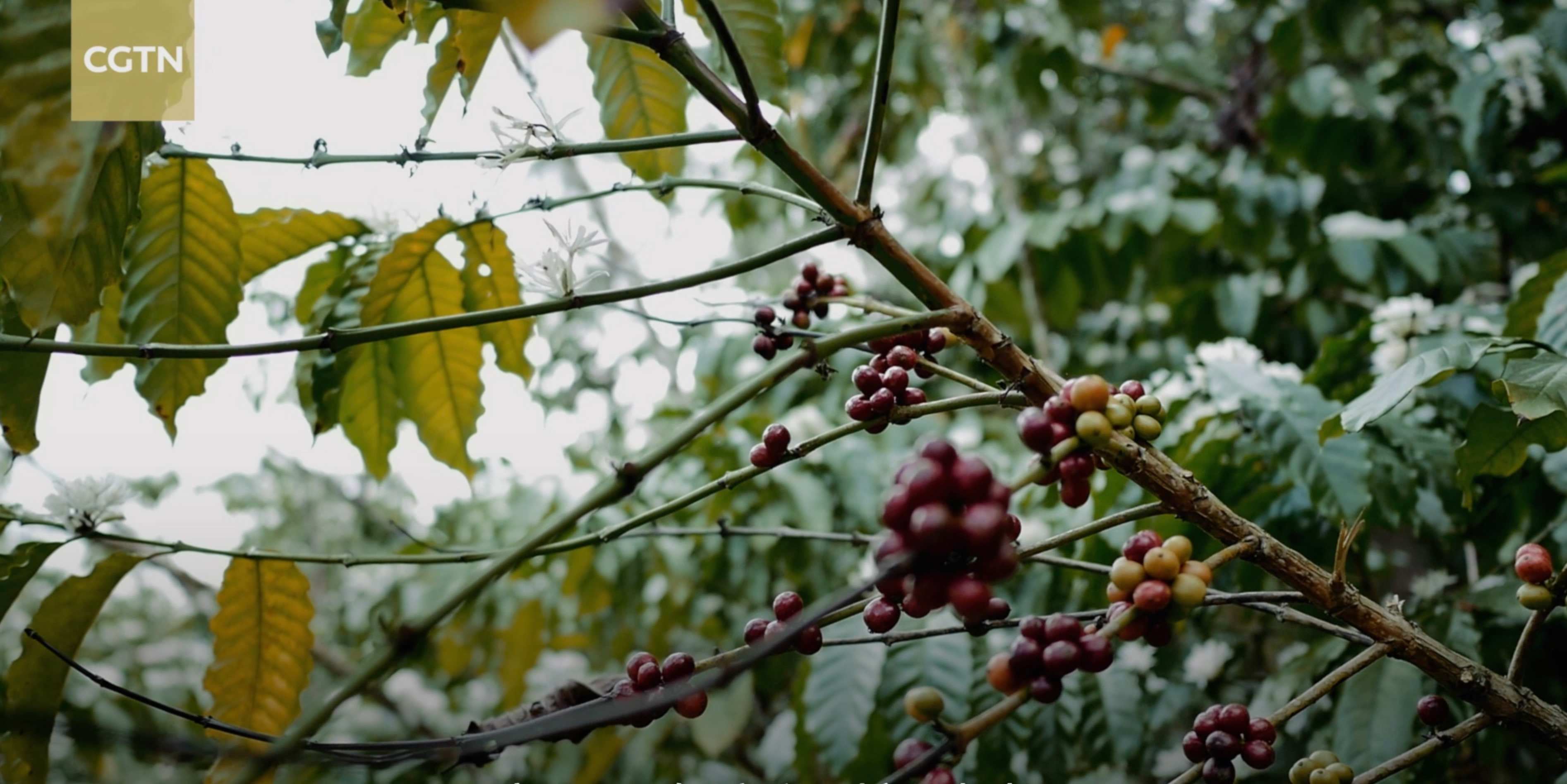
CGTN Photo
CGTN Photo
The decline of Xinglong coffee began a decade ago, when many coffee tree farmers switched to betel trees for higher profits. Coffee trees are very delicate so the labor cost is higher than other plants, while the selling price of raw coffee beans has fallen lower and lower.
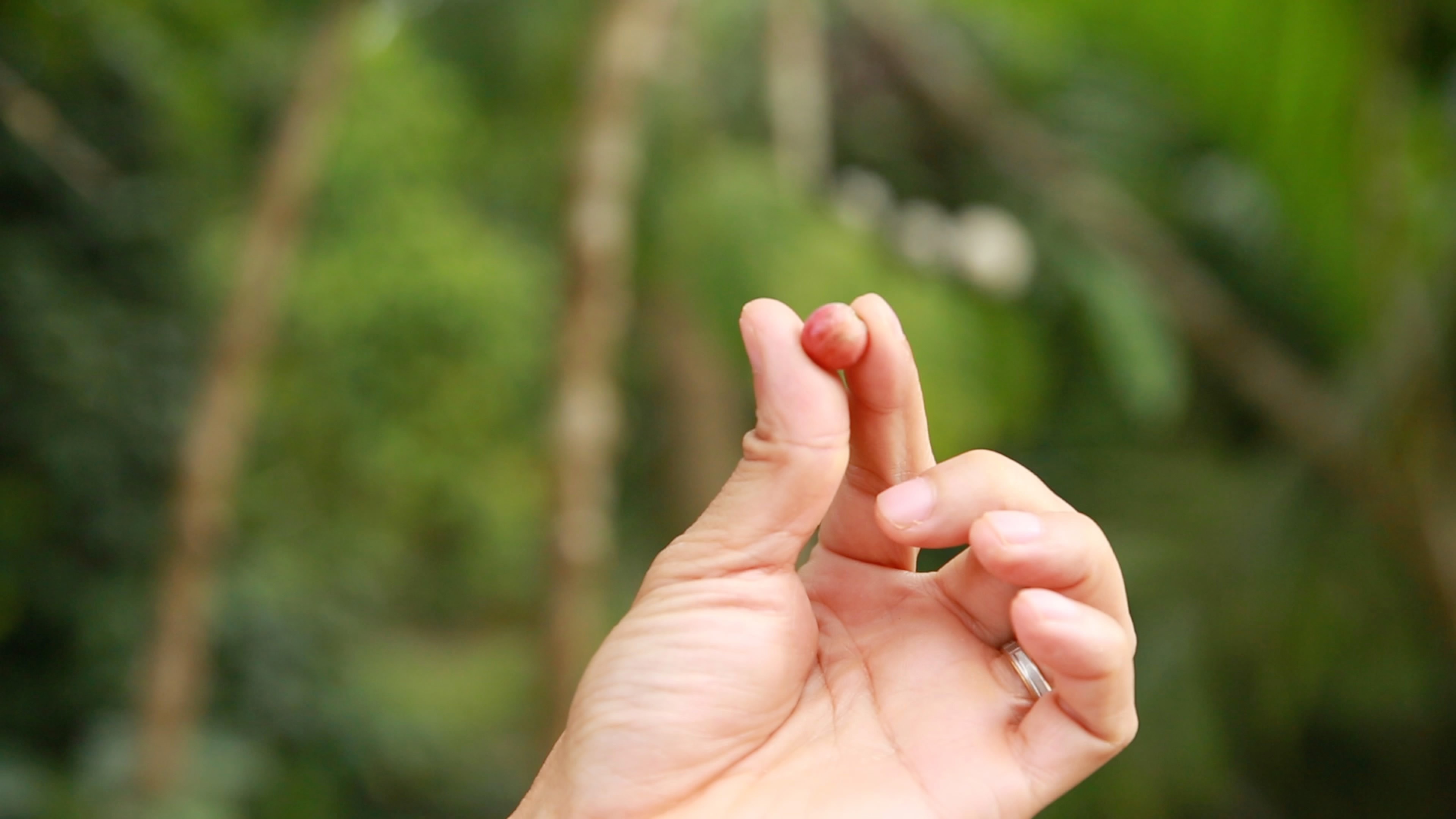
CGTN Photo
CGTN Photo
“Farmers have to pick red coffee beans one by one. Coffee beans are not ready at the same time, so human labor cannot be replaced by machines. High costs are inevitable,” said Wu.
The annual output of coffee beans in Xinglong is now about 10 tonnes per year. However, the annual import volume of coffee beans from Vietnam is over 100 tonnes.
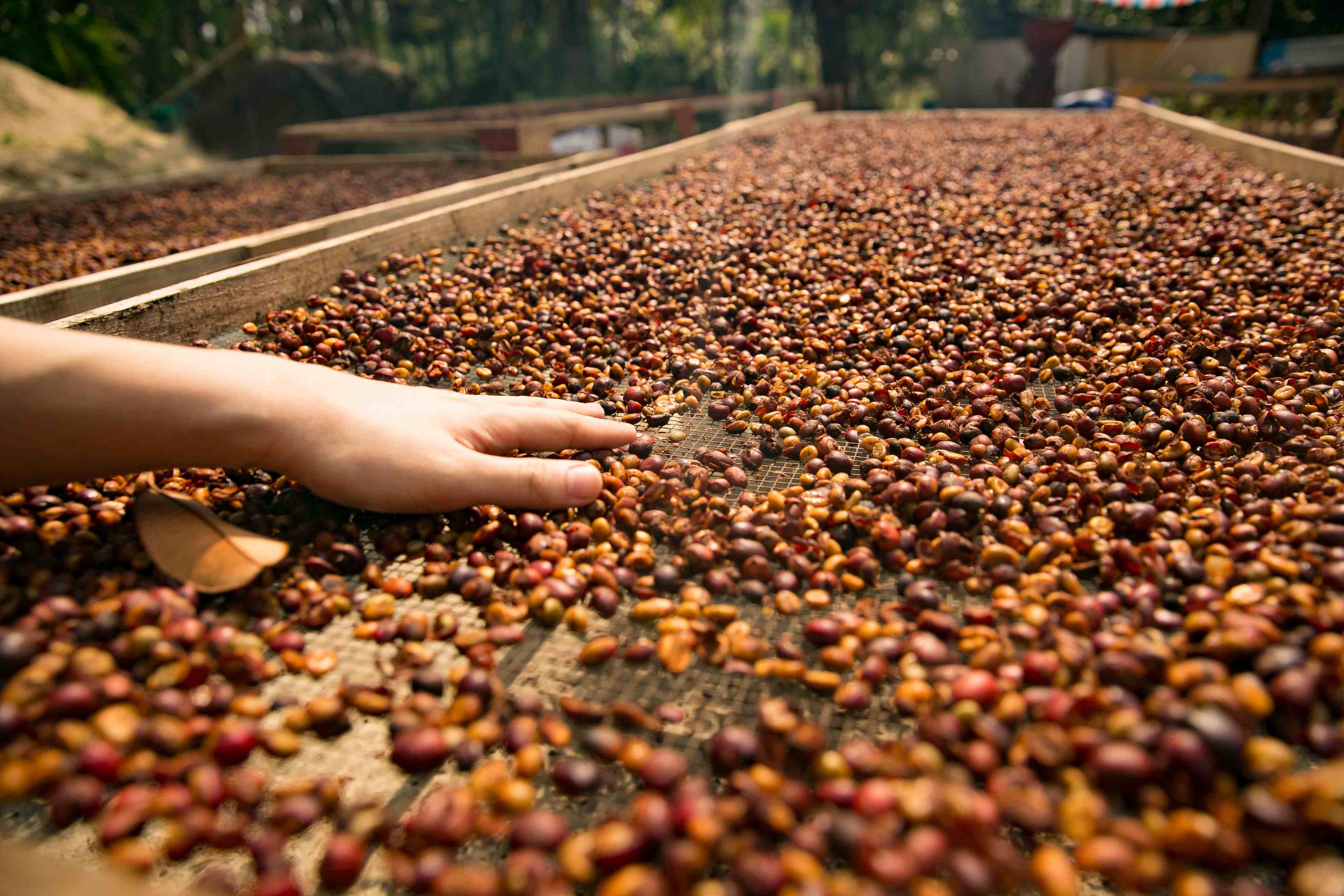
CGTN Photo
CGTN Photo
The coffee industry in Xinglong faces two main obstacles: few coffee beans harvested, and little acknowledgement of coffee roasting skills.
“Taste of China invited me, but I put it off.”
Wu Haiming’s grandfather was among the first generation to build up the coffee industry in Xinglong.
“My father first took me to a coffee tree field when I was a child,” Wu said. “Creating a cup of coffee is not an easy task when you’re part of the growing process.”
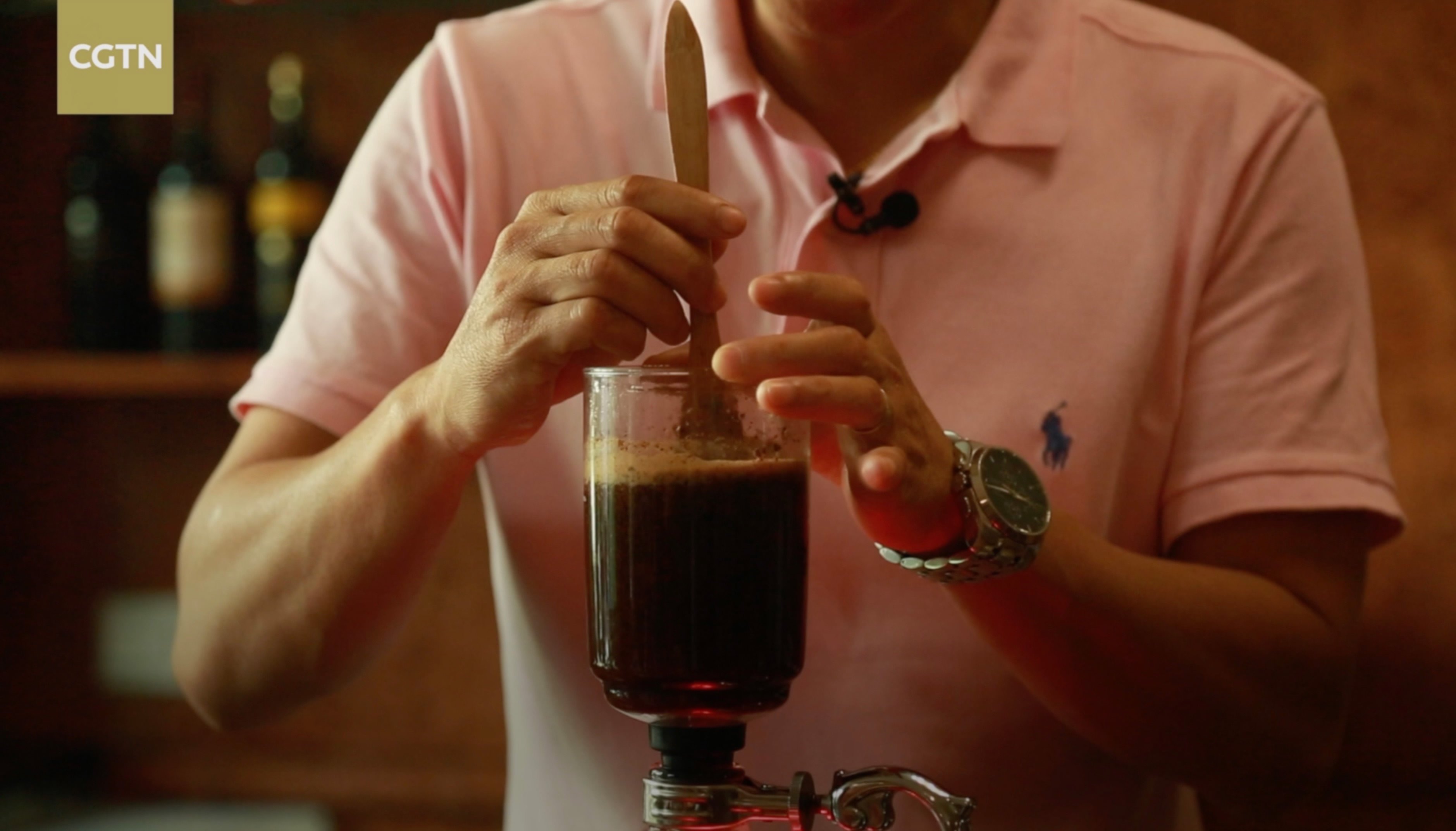
CGTN Photo
CGTN Photo
However, Wu did not work fulltime in the coffee industry until he was 35.
“I worked elsewhere for 10 years before I found my love of coffee. Then I decided to make it a career,” Wu told CGTN. “All my life is for coffee.”
“I’m the first in China to roast wine flavors from coffee beans,” Wu proudly said. “It took me two years, and two tonnes of coffee beans.” Roasting a wine smell from coffee beans is not new internationally, but in China, Wu was the first.
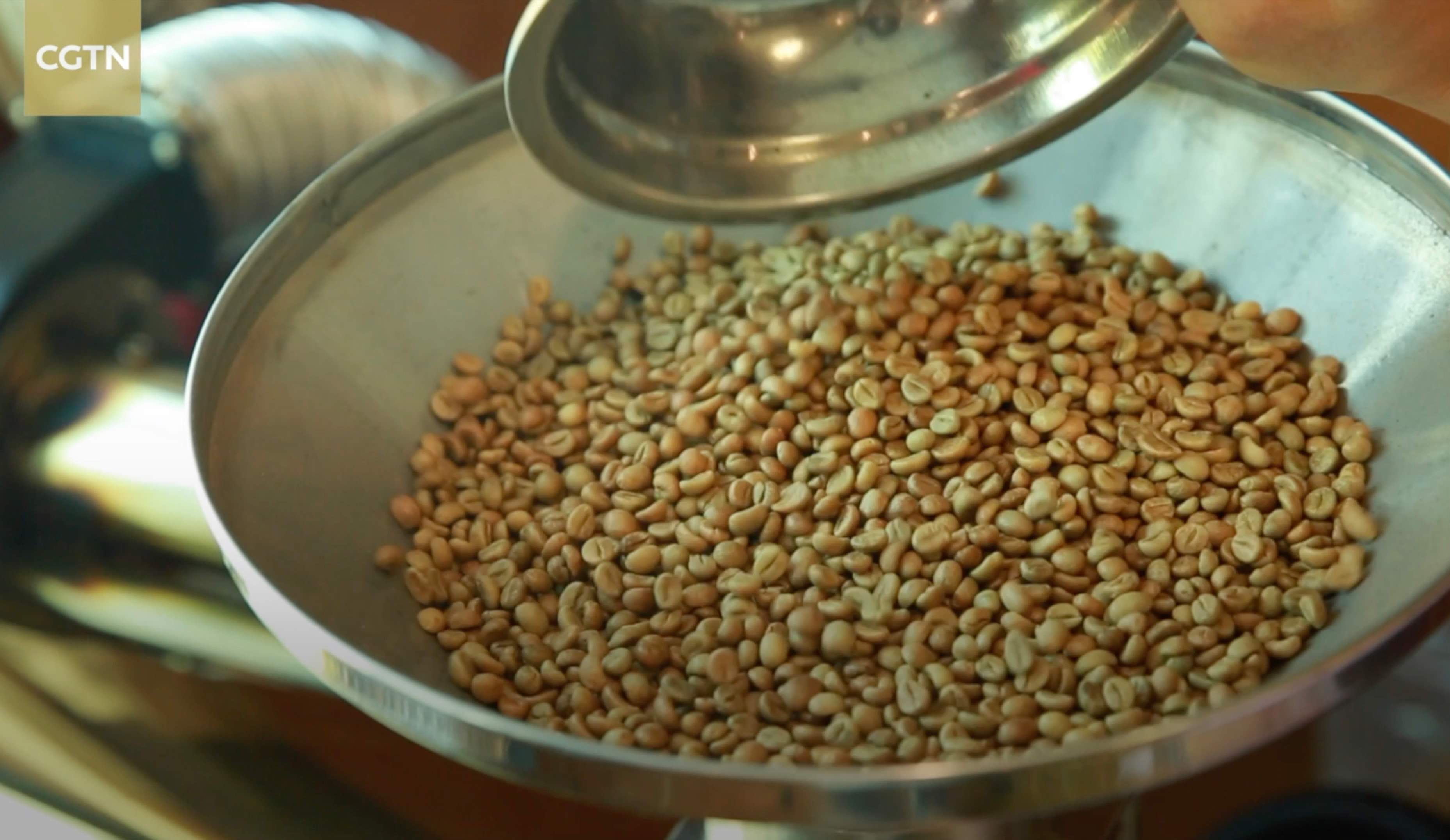
CGTN Photo
CGTN Photo
“The director of documentary The Taste of China approached me once, but I put it off,” Wu revealed. “Production efficiency is low, so there is always a shortage of Xinglong coffee beans. I don’t want to let down people who cannot find real Xinglong coffee.”
Wu also fears that the poor quality of fake Xinglong coffee has ruined the reputation of the brand.
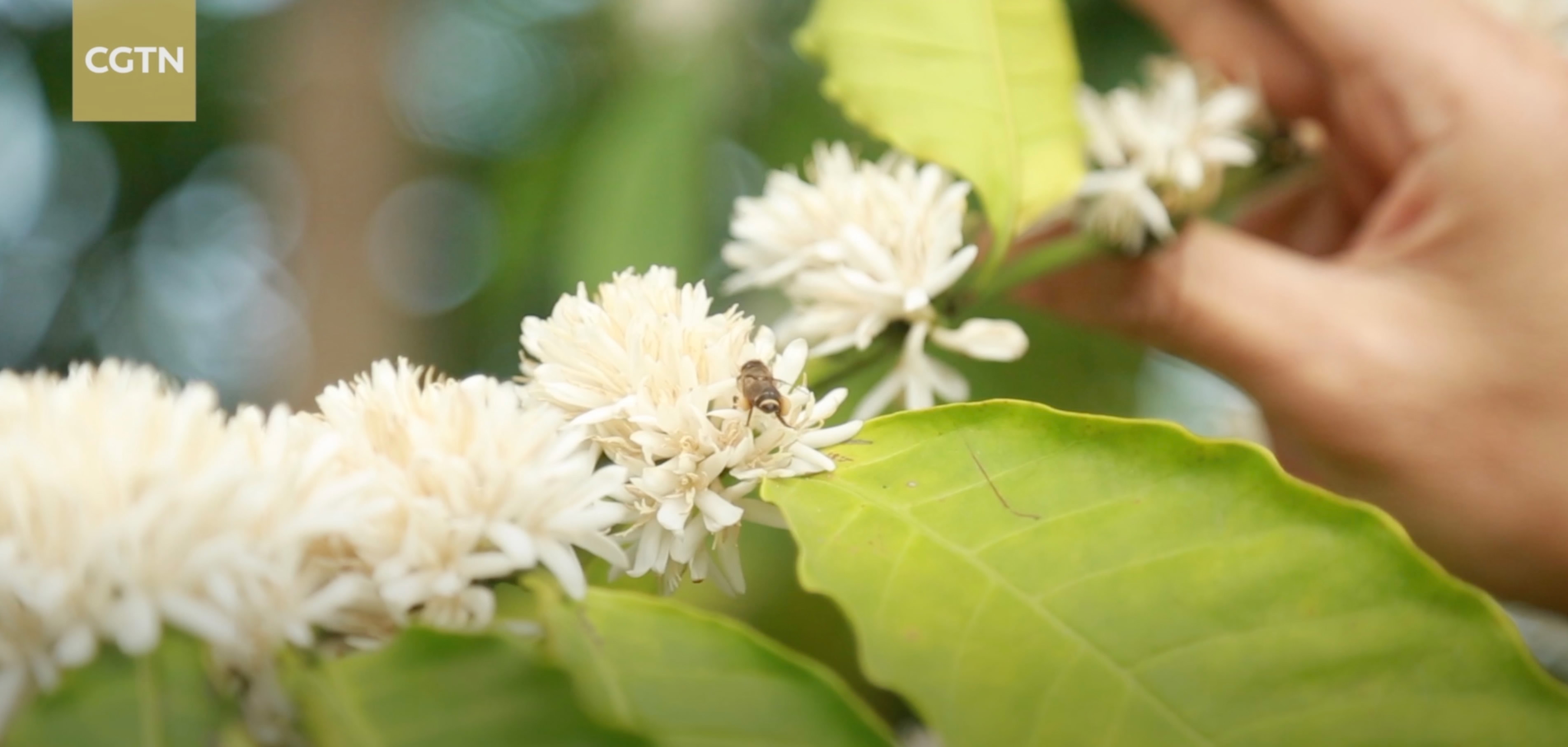
CGTN Photo
CGTN Photo
“Love of coffee is a common interest shared among descendants of overseas Chinese from 22 different countries,” Wu said. “Coffee in Xinglong is a sign of overseas Chinese culture.”
“I will be the last one to plant coffee trees, if no one takes over. My concern is one day no one will remember the story of overseas Chinese who built this land and industry from zero. The legacy of Xinglong coffee is the legacy of overseas Chinese spirit.”

SITEMAP
Copyright © 2018 CGTN. Beijing ICP prepared NO.16065310-3
Copyright © 2018 CGTN. Beijing ICP prepared NO.16065310-3